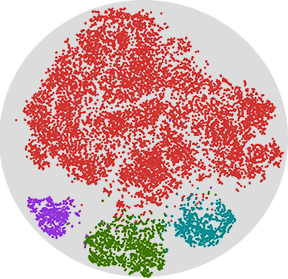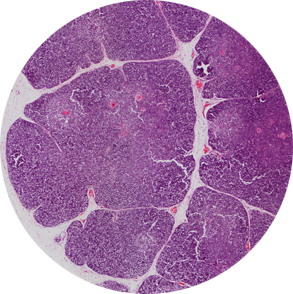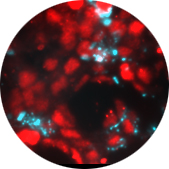 Pluripotent Stem Cells
Pluripotent Stem Cells
Pluripotent stem cells have the remarkable capability to self-renew in culture while maintaining the ability to differentiate into the cell types of the body. Paired with recent advances in functional genomics, subject-specific induced pluripotency and directed differentiation protocols, pluripotent stem cells allow for detailed molecular insights on normal and impaired human cell differentiation. Our laboratory investigates the molecular basis of cell differentiation in the human endodermal lineage. Of particular interest are lineages of the anterior foregut for their involvement in diseases reaching from defects in metabolism to immune syndromes.
A better understanding of the molecular underpinnings that guide cellular differentiation and function will be critical to generate high-fidelity and safe stem cell differentiation products for investigation and treatments. In our research, we combine epigenomics profiling technologies with CRISPR-based functional genomics, to decipher gene regulatory programs that drive cellular differentiation, identity and function.
 Thymus Biology
Thymus Biology
The immune system is critical to protect from pathogens and disease. While an organized immune response can protect the body from pathogens and cancer, a defective or hyperactive immune system can expose the body to disease or lead to autoimmune syndromes, respectively. The thymus mediates immune education, and our laboratory deciphers the development of this primary lymphoid organ. A better understanding of thymus development will be critical to combat immune system decline and dysfunction through targeted interventions. Implications of this research reach from cell replacement therapy and tolerance induction to rejuvenation of the immune system. In our research, we combine rodent and pluripotent stem cell models with single cell omics and perturbations.
 Immune Syndromes
Immune Syndromes
One of our long-term goals is to generate immune cells with desired function in patient-specific systems de novo. Emerging developmental cell atlases shall guide cell and tissue engineering efforts along those lines. Such systems will be critical for studying human immune syndromes and shall allow for the pursuit of innovative treatment strategies, to battle diseases rooted in a dysfunctioning or declining immune system.

